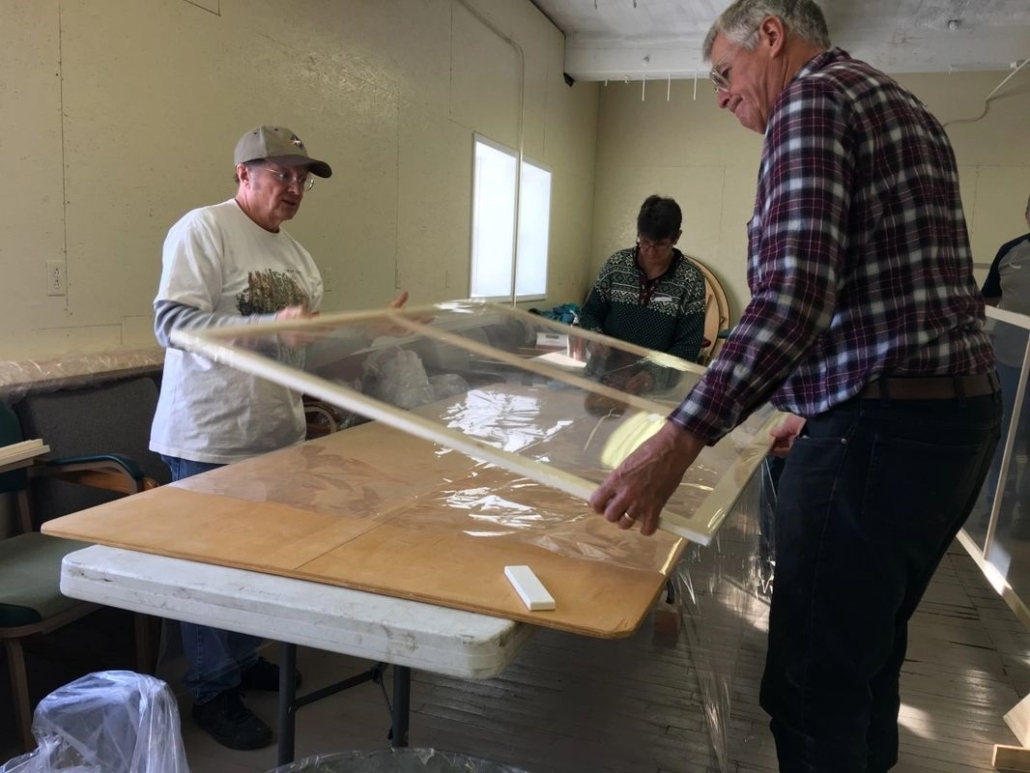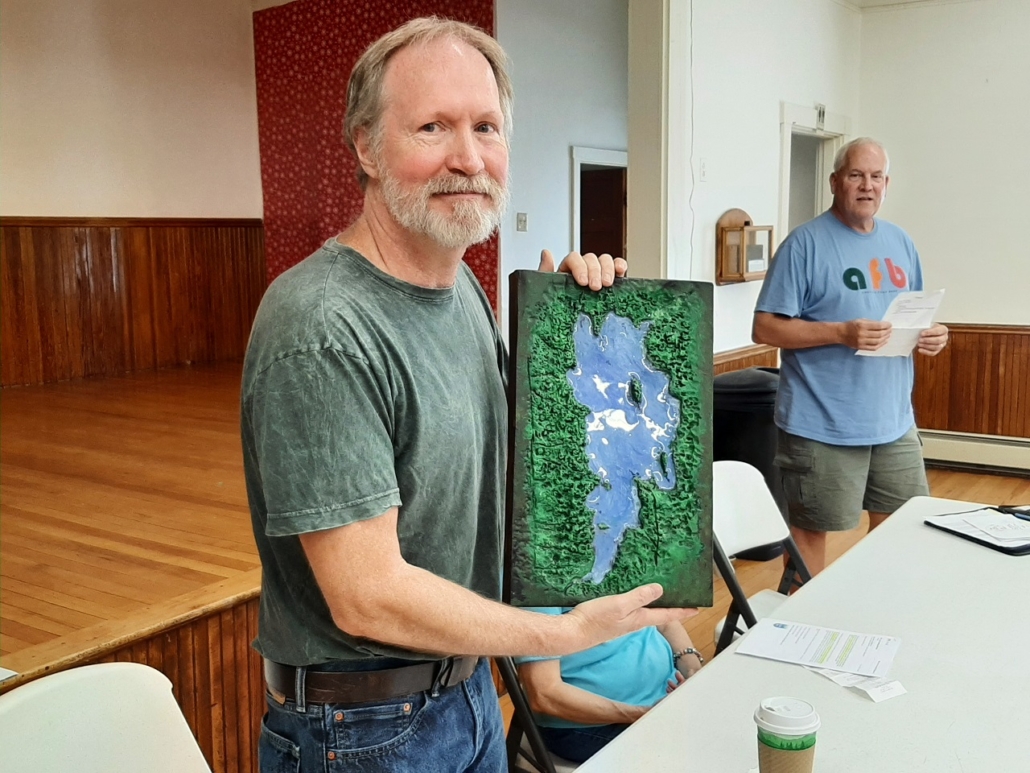China to hold WindowDressers workshop this fall

Volunteers prepare window inserts at the 2019 WindowDressers workshop, two years ago, in Vassalboro. (photo courtesy of Vassalboro Historical Society)
by Eric W. Austin
The China for a Lifetime Committee is busy planning for a WindowDressers workshop that will take place this November 3 – 7. The initiative is a volunteer-led, “barn-raising” effort to construct low-cost “window inserts” to reduce residential energy bills.
The window inserts are constructed of pine wood frames, covered in thin plastic film and can usually be ordered in natural wood or painted white, however, because of pandemic-related difficulties in the lumber industry, they may not be available in white this year. (Please inquire at the time you place your order.) There is a maximum order limit of 10 frames, and no minimum. Orders are open to residents in China, Vassalboro, Palermo, Albion and Windsor.
The price of the window inserts will vary depending on the size of the frame requested, but generally range from $30-$70 per frame for natural pine, with an additional $5-$10 if painted white. There is financial help available for those who qualify.
The committee is working with the statewide WindowDressers organization, described on their website as a “volunteer-driven non-profit organization dedicated to helping Maine residents reduce heating costs, fossil fuel consumption, and CO-2 emissions by lowering the amount of heat loss through windows.” WindowDressers is based out of Rockland.
The China for a Lifetime Committee, a local group which supports community initiatives aimed at improving the quality of life for residents, has been meeting for several months to discuss having a WindowDressers workshop in China this fall. Vassalboro hosted a workshop two years ago, and the China for a Lifetime Committee had discussed organizing a workshop in China last year before plans were scrapped because of the pandemic.
As the workshop will take place during the first week of November, orders should be placed no later than October 1. Committee volunteers will need to visit your home to take window measurements which will then be sent to the WindowDressers organization, who will cut the wood for the frames. All volunteers doing the measuring will be vaccinated for COVID-19, and can also wear a mask if the homeowner requests. Measurers need to complete their task and submit data to WindowDressers by mid-October, so to avoid “crunch time”, please make sure to get your order in and set up a measuring appointment as soon as possible.
There is a great need for local community volunteers in order to make this a successful WindowDressers workshop. It is requested that anyone ordering frames also sign up for a four-hour shift on one of the workshop days. The committee is also looking for anyone willing to supply food to the teams working during the workshop.
To submit an order for window inserts, or to volunteer, please call the China town office at 445-2014, send an email to the China for a Lifetime Committee at chinaforalifetime@gmail.com, or visit the WindowDressers website and fill out the form located at windowdressers.org/sign-up-for-inserts.
For more information about the China for a Lifetime Committee, please visit their website at chinaforalifetime.com.









